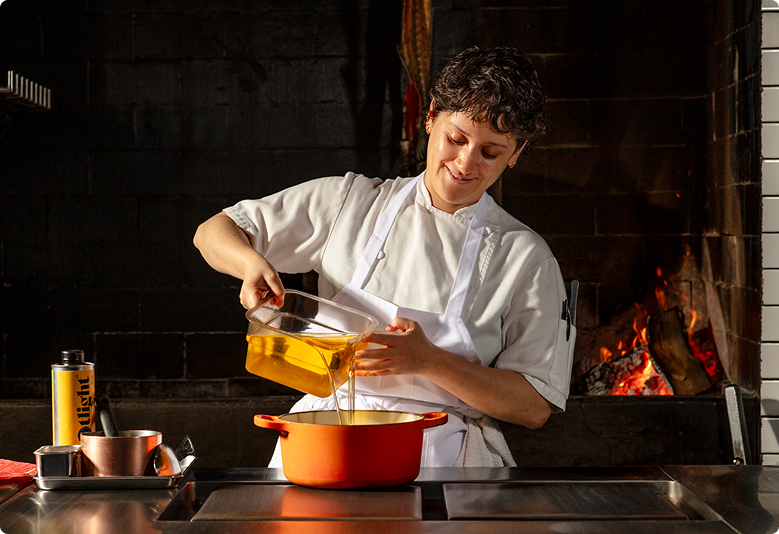

Checkerspot advances microalgae fermentation with first high-oleic palm oil alternative
Checkerspot has successfully developed the world’s first high-oleic palm oil alternative produced entirely through the fermentation of microalgae, the company announced today. The achievement, detailed in a study published this month in the journal Fermentation, marks a major step toward sustainable and domestically produced alternatives to tropical oils.
Using the microalga Prototheca moriformis, Checkerspot employed classical strain improvement techniques to enhance oil yield and composition without relying on genetic engineering. The resulting oil closely matches the fatty acid profile of conventional high-oleic palm oil, offering more than 55% oleic acid and 32% palmitic acid.
"This milestone underscores our commitment to developing domestically produced, sustainable, high-performance alternatives to conventional oils," said Scott Franklin, Chief Scientific Officer & Co-founder of Checkerspot. "By leveraging microalgae fermentation, we’ve created a scalable solution that addresses both environmental concerns and the supply chain vulnerabilities associated with the production of tropical fats such as high-oleic palm oil."
Checkerspot’s fermentation process demonstrated scalability from laboratory to industrial levels, achieving oil titers of up to 145g/liter and an oil content comprising approximately 70% of the dry cell weight. According to the company, this positions its microalgae-derived oil as a commercially viable alternative for applications across food, nutrition, and personal care sectors, where high-oleic palm oil is widely used.

Building on its previous successes with the same platform, including the 2024 announcement of a human breast milk fat analog, Checkerspot has already scaled production of several alternative oils developed in its lab. The company said its work on high-oleic palm oil alternatives is progressing toward full commercial viability, with partnerships already underway to move the product into the palm oil alternatives market.
Traditionally, high-oleic palm oil is sourced primarily from Latin America, particularly Colombia and Ecuador, where production relies heavily on hybrid pollination systems. This cultivation method brings significant challenges, including high costs, labor intensity, and negative environmental impacts such as deforestation and greenhouse gas emissions.
Checkerspot’s approach bypasses conventional agriculture by producing oil directly through microalgae fermentation. According to the company, this method offers a cleaner, more consistent, and scalable alternative that could help mitigate supply chain disruptions and environmental degradation associated with traditional palm oil production.
"In a time of trade uncertainty this is a clear signal that Checkerspot’s platform is here to provide solutions for skyrocketing commodities and uncertain supply chains," said Jim Kim of Builders VC and a Checkerspot board member. "This technology answers a critical market demand for domestically produced and reliable alternatives to unreliable existing global supply chains. These systems are ailing and with proven technology to address the gap, we’re confident that Checkerspot’s products will play a significant role in improving global nutrition."
Checkerspot’s broader mission is to harness biotechnology to create renewable, high-performance ingredients. The company's platform enables the production of tailored oils and fats that meet specific functional and nutritional requirements across multiple industries.
With the successful development of a high-oleic palm oil alternative, Checkerspot said it is continuing to demonstrate the versatility of microalgae as a production system, while addressing key challenges in global food and personal care markets.
If you have any questions or would like to get in touch with us, please email info@futureofproteinproduction.com


-p-800.jpg)



